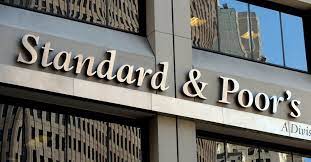
Ivory Coast continues to establish itself as a key player in Sub-Saharan Africa, with sustained economic dynamics that attract the attention of international markets. In October 2024, the rating agency Standard & Poor's (S&P) upgraded the country's credit rating from "BB-" to "BB," with a stable outlook. This development places Ivory Coast among the highest ratings in the region, just behind Botswana, and reflects the growing confidence in its ability to meet its financial commitments.
This upgrade is based on solid economic foundations. Indeed, Ivory Coast has managed to diversify its economy, which was long dependent on agricultural raw materials, by shifting towards high-growth sectors such as agro-industry and oil extraction. The start of production at the Baleine field in 2023, along with the discovery of the Calao field, has strengthened the country's growth prospects. Between 2019 and 2024, Ivory Coast recorded an average annual growth rate of 5.6%, and forecasts indicate a GDP increase of 6.6% between 2024 and 2027.
Monetary stability, ensured by the West African Economic and Monetary Union (UEMOA), has also played a key role in this ascent. With controlled inflation and adequate foreign exchange reserves, foreign investor confidence has strengthened, making Ivory Coast a favored destination for international capital.
However, challenges persist. Dependence on raw materials, particularly cocoa, and the management of public debt remain priorities to ensure sustainable growth. The Ivorian government must continue its structural reforms to consolidate gains and further strengthen its resilience against global economic fluctuations.
Thus, Ivory Coast, firmly committed to its economic transformation process, is ready to continue its ascent on the international stage while addressing the challenges of necessary diversification for sustained and inclusive development.
Source : Sika finance, Web Portal Editorial MEPD
